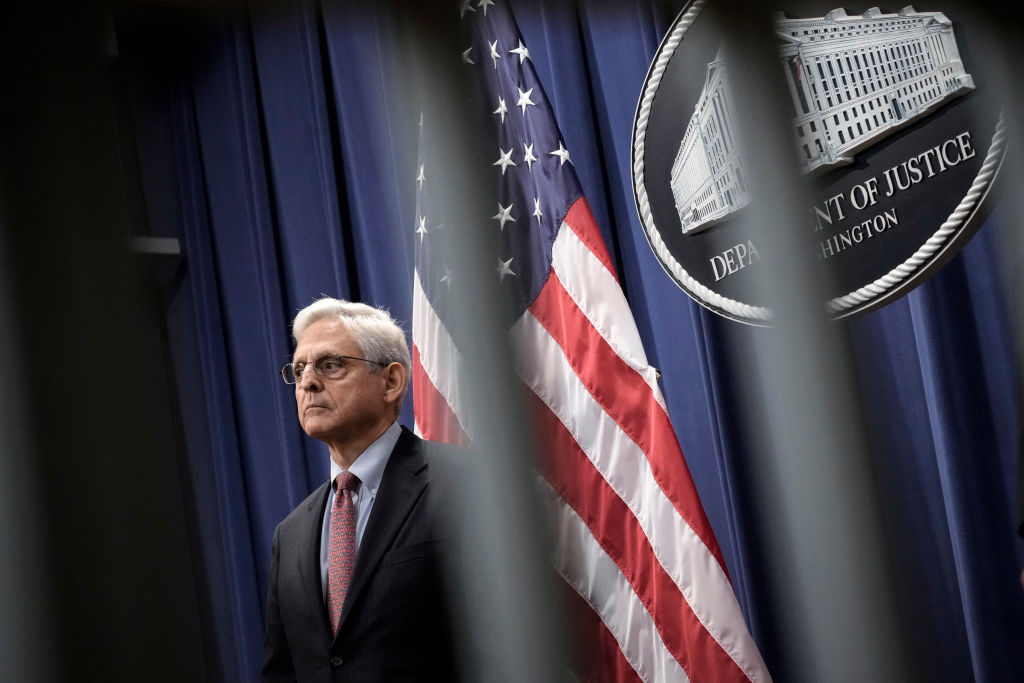DOJ Erases Crack Cocaine Disparity In New Guidance
Attorney General Advises Federal Prosecutors To Treat Crack And Powder Cocaine The Same

Source: Drew Angerer / Getty
The Department of Justice issued updated guidance on Friday on drug sentencing seeking to erase disparities between crack and powder cocaine. Attorney General Merrick Garland announced that the department was realigning its stance to ensure that prosecutors are “treating like cases alike.”
Garland’s latest edict only applies to prosecutors and cases within the federal system. As outlined in the memo, the DOJ instructed prosecutors “to charge and make sentencing recommendations for crack cocaine defendants no differently than for defendants in powder cocaine cases.” The memo also stated that the unwanted racial disparities in the criminal justice system were a result of a distinction between crack and powder cocaine that had no scientific basis.
In a statement, Color of Change President Rashad Robinson applauded the decision but noted that lawmakers still had a job to do in fixing unjust laws.
The U.S. failed war on drugs has led to the targeted criminalization of Black people for drug offenses, and has destroyed countless communities, families, and lives over decades. Since our founding, Color Of Change and our members have advocated to right these wrongs and today’s decision shows that the activists and community members that signed petitions, protested and testified for more equity in the criminal legal system have real power. We applaud the Attorney General and his team for using the authority they have to finally bring this blatant injustice to a halt and thank tireless activists for bringing us to this day. And while today is a victory, this change in DOJ policy does not exonerate the lawmakers who will continue to harm Black communities by supporting explicitly racist laws.
Steps to address parity in sentencing have been slow. While changes to federal drug sentencing happened under former President Obama in 2010, the disparity between crack cocaine and powder form persisted. The Fair Sentencing Act was a step in the direction toward sentencing parity but there is room for further Congressional action.
The DOJ memo highlights the importance of prosecutorial discretion. While the law itself remains unchanged, Garland is utilizing tools available to him to address the persisting disparity in drug sentencing. He also instructed prosecutors to reserve the use of mandatory minimums for those with a history of violence or otherwise considered violent.
How these factors are used is left to the subjective determination of the individual prosecutors. Robinson also said, “the fight isn’t over.” He further reiterated calls to pass the EQUAL Act. A recent compromise proposal would reduce the disparity to 2.5:1, which is a reduction from the current 18:1 but still not actually equal.
“We also expect police departments to move other racist and ineffective law enforcement policies into the dustbin of history,” Robinson said. “We are confident this is the beginning — not the end — of building a more equitable criminal legal system in our country.”
SEE ALSO:
Op-Ed: Fulton County Prosecutors Share Blame For Jail Overcrowding
















